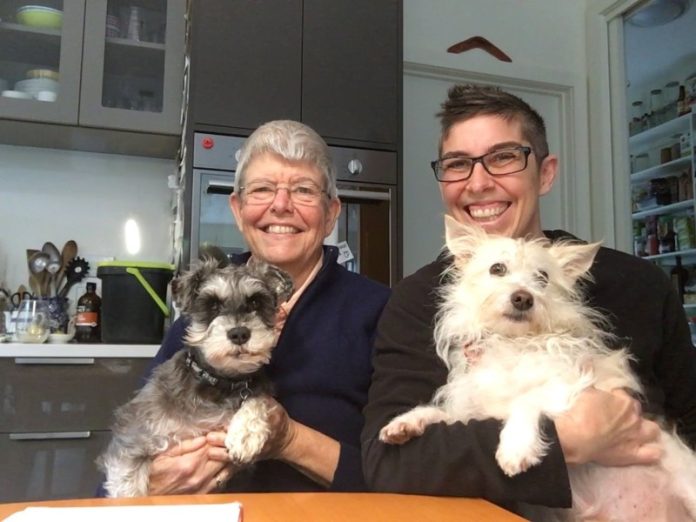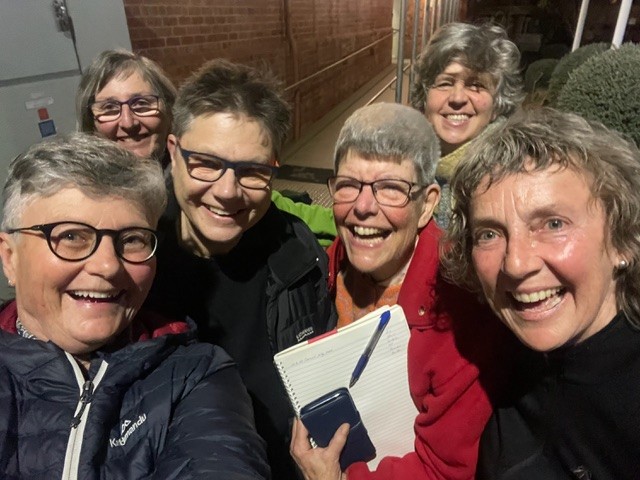
A group of 40 older women are building a village of 31 small houses in the heart of Castlemaine, creating a community where women of all sexual orientations can safely support each other as they grow older.
Older Women in Cohousing (WINC), whose members have been traversing the logistical landscape of bringing their vision to life since 2017, recently secured a council permit, paving the way forward for the construction of a sustainable, low-impact cohousing village on their five-acre property.
Wanting to reflect the diversity and financial status of all women, WINC set out to ensure that five of the homes would be available for women accessing social housing, and six of the homes would be allocated to ‘middle women’, those who have some income or assets, but are deemed ineligible for a mortgage, largely due to their age.
Middle Women group facilitator Maria Bamford told the Express that older women were the biggest cohort of people at risk of homelessness.
“This is due to a range of life circumstances,” she said.
“Women often earn less money than men, because many work in caring industries. There are relationship breakdowns, and sometimes women have to leave a relationship for their own safety.
“These sort of systemic issues get in the way and then as they get older, these women find they don’t have enough years left to work and to get money together.
“Plus, housing prices keep going up and once women get to a certain age the bank won’t give them a mortgage,” she said.
Maria is proud that WINC will have a mixed tenure of housing, where women from all socio-economic backgrounds can all live together and have the same opportunities to participate and influence decisions.
“If you come to visit the village, you wouldn’t have a clue who’s social housing, who’s a middle woman, who’s a full buyer. It’s a fantastic model where we’ve decided not to whinge or be victims, instead choosing to be proactive and try and create a solution ourselves,” she said.
The Middle Women Housing Fund has a number of criteria that need to be met, including the middle women contributing a minimum of 40 per cent of the purchase price. The property will then be co-owned by the fund and the middle woman.
“The middle woman will get to live at WINC for as long as she chooses and will be responsible for covering the costs for the owners corporation, insurance etc, just as all owners will have to,” Maria said.
“When she passes away, or leaves, the home will get sold to another middle woman and the money that has been invested by the fund will stay within the fund. So, it’s an in perpetuity fund to help ongoing middle women.”
So far, the Middle Women’s Fund has received $560,000 in donations, but they require at least another million to cover the cost of the six properties.
Of the six middle women involved in the project, some are in their 70s, living in private rentals and still working hard to save as much as they can, trying to get ahead.
“If they didn’t have an option like WINC they would continue to have to live in the private rental market and at some point, their money will go. There’s not enough social housing, and this is why they wind up in tents and cars. It’s hideous! In this, the so-called lucky country,” Maria said.
“We are still a lucky country, compared to many other places, but it’s so frustrating.
“WINC has an auspice arrangement with Matrix Guild, which has DGR status so if people want to donate money to the Middle Women Housing Fund they can be issued a receipt and it’s tax deductible.”
If you think you might be able to assist these middle women to purchase a home in WINC, contact Anneke Deutsch, anneke@winccohousing.org.au or Mary-Faeth Chenery, mary-faeth@winccohousing.org.au








